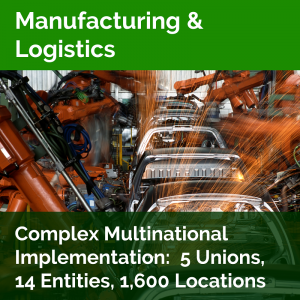
Are you looking for New Jersey logistics jobs? These jobs can be done in many settings and require different skills. A bachelor's degree is preferable. These qualifications are required if you wish to be a logistics manager. These skills include the ability of working independently and being able to problem-solve. A positive attitude is essential and you should be able to solve problems naturally.
a bachelor's degree is required
A Bachelor's Degree from an accredited university is required, along with 4+ years experience and demonstrated organizational and time-management abilities, to be eligible for logistics jobs in New Jersey. Strong communication skills are required as well as an ability to speak English fluently. A strong interpersonal skill set is essential, as well as an aptitude for data analysis and leadership skills.

You will need a bachelor's degree in logistics to be eligible for many of the positions. Although most jobs in this industry are low-skilled, you can still make a lot by applying your skills to other industries. New Jersey has many middle skilled jobs that require people with specialized training. One of these middle-skill programs is available at NJCU's Center for Workforce and Community Development.
Employers will accept a work experience in logistics as an alternative to a college education. Your marketability and chances of being hired are enhanced by prior experience. If you have a bachelor’s degree in logistics, it is possible to work as a courier or customer service representative. Higher-level jobs in logistics, such as those in management, will become available if you have more experience and are able to demonstrate your skills. Additionally, you may be able to pursue further education in logistics such as teaching or research.
Bachelor's degrees are preferred
Some logistics positions require a bachelor’s education. Bachelor’s degrees in related fields are often preferred. Most employers prefer applicants with a bachelor's degree, because it enables them to handle complicated supply chains and transportation laws. Students who complete a bachelor's program in logistics will have a broad understanding of the industry, which can help them develop their professional networks. One entry-level job in logistics could be as a dispatcher or customer service representative. Management positions may become possible if you have an advanced education and are qualified. There are other options available for high-level logistics positions, including research, consulting, and postsecondary education.
Most employers prefer a bachelor's in logistics. However, an associate's may be acceptable. In certain cases, relevant work experience may also substitute for education. For job seekers, certifications in industry-specific areas such as warehouse management, data analysis, or supply chain administration are helpful. For logistics jobs in New Jersey, a bachelor’s degree is still preferred. A bachelor's in logistics will provide you with the necessary knowledge to understand how supply chains work. A bachelor's degree in logistics is also required by many companies, especially those that handle large-scale transactions.

For a career in Industrial Engineering, you will need to have a bachelor’s degree along with experience in manufacturing and industrial facilities. Additionally, you will need to be able and able to communicate with employees. A minimum of six years work experience is required for an Industrial Engineer. You should also be familiar with similar working conditions in other industries to which you are applying.
FAQ
How can efficiency in manufacturing be improved?
First, determine which factors have the greatest impact on production time. Then we need to find ways to improve these factors. If you don't know where to start, then think about which factor(s) have the biggest impact on production time. Once you've identified them, try to find solutions for each of those factors.
What is the job of a production plan?
Production planners ensure that all project aspects are completed on time, within budget and within the scope. They ensure that the product or service is of high quality and meets client requirements.
What are the products of logistics?
Logistics refers to all activities that involve moving goods from A to B.
They cover all aspects of transportation, such as packing, loading, transporting and unloading.
Logisticians make sure that the right product arrives at the right place at the correct time and in safe conditions. They provide information on demand forecasts as well stock levels, production schedules and availability of raw material.
They also keep track of shipments in transit, monitor quality standards, perform inventories and order replenishment, coordinate with suppliers and vendors, and provide support services for sales and marketing.
What is the difference in Production Planning and Scheduling, you ask?
Production Planning (PP) refers to the process of determining how much production is needed at any given moment. This can be done by forecasting demand and identifying production capabilities.
Scheduling refers the process by which tasks are assigned dates so that they can all be completed within the given timeframe.
Statistics
- [54][55] These are the top 50 countries by the total value of manufacturing output in US dollars for its noted year according to World Bank.[56] (en.wikipedia.org)
- In the United States, for example, manufacturing makes up 15% of the economic output. (twi-global.com)
- According to the United Nations Industrial Development Organization (UNIDO), China is the top manufacturer worldwide by 2019 output, producing 28.7% of the total global manufacturing output, followed by the United States, Japan, Germany, and India.[52][53] (en.wikipedia.org)
- (2:04) MTO is a production technique wherein products are customized according to customer specifications, and production only starts after an order is received. (oracle.com)
- It's estimated that 10.8% of the U.S. GDP in 2020 was contributed to manufacturing. (investopedia.com)
External Links
How To
How to Use 5S for Increasing Productivity in Manufacturing
5S stands in for "Sort", the "Set In Order", "Standardize", or "Separate". Toyota Motor Corporation developed the 5S method in 1954. It improves the work environment and helps companies to achieve greater efficiency.
The basic idea behind this method is to standardize production processes, so they become repeatable, measurable, and predictable. This means that every day tasks such cleaning, sorting/storing, packing, and labeling can be performed. These actions allow workers to perform their job more efficiently, knowing what to expect.
There are five steps to implementing 5S, including Sort, Set In Order, Standardize, Separate and Store. Each step is a different action that leads to greater efficiency. If you sort items, it makes them easier to find later. Once you have placed items in an ordered fashion, you will put them together. Once you have separated your inventory into groups and organized them, you will store these groups in easily accessible containers. You can also label your containers to ensure everything is properly labeled.
Employees will need to be more critical about their work. Employees need to be able understand their motivations and discover alternative ways to do them. To implement the 5S system, employees must acquire new skills and techniques.
The 5S method not only increases efficiency but also boosts morale and teamwork. They feel more motivated to work towards achieving greater efficiency as they see the results.